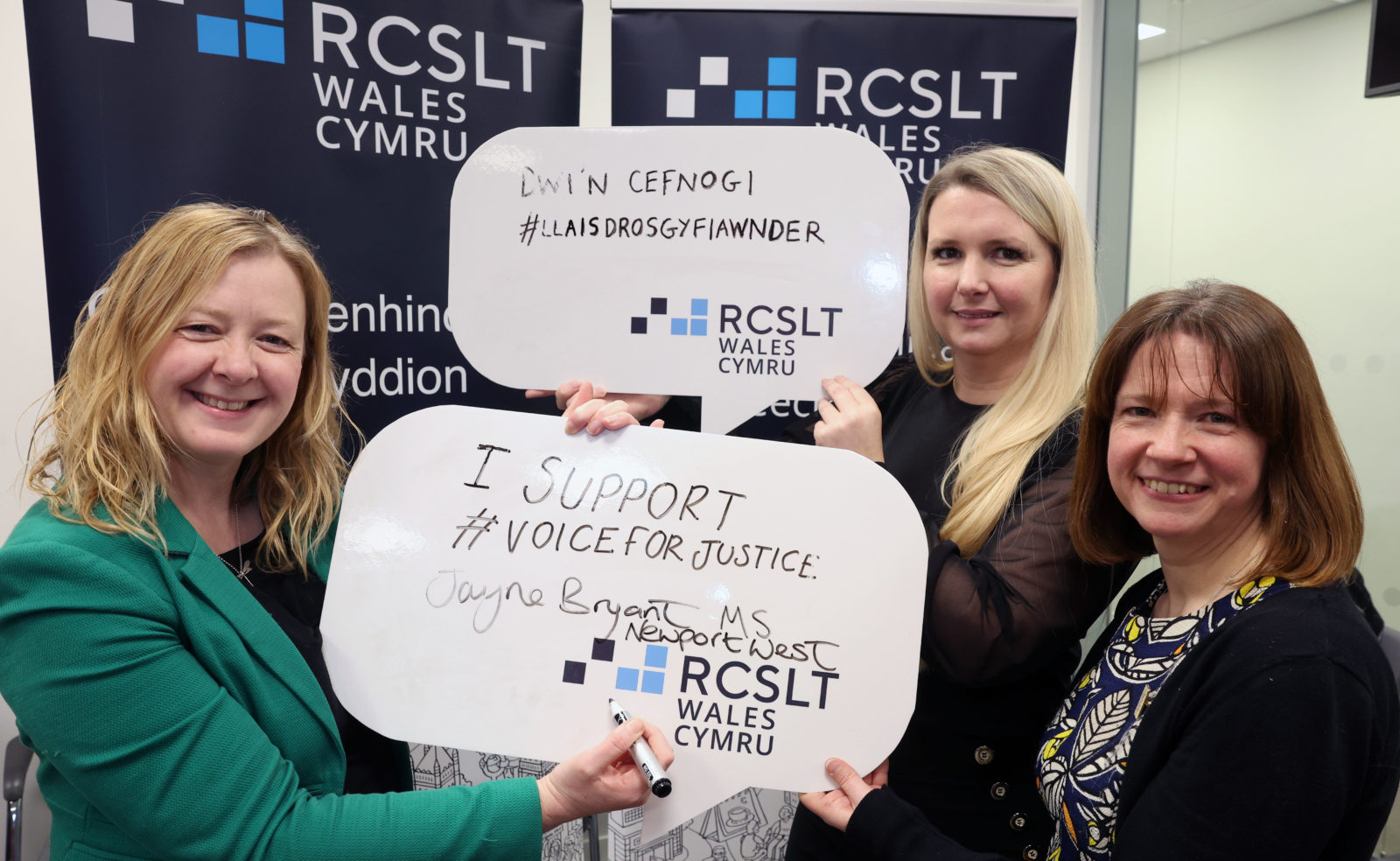End the decade-long failure to give young people in justice a voice, Royal College of Speech and Language Therapists tells Welsh Ministers
To best support young people and avoid reoffending, the Royal College of Speech and Language Therapists is calling for representation of speech and language therapists across youth justice services.
This week, the RCSLT is hosting an event at the Senedd urging Senedd Members (MSs) to give a voice to young people who have offended or are at risk of offending.
For over a decade, the RCSLT, and stakeholders including charities and MPs, have repeatedly highlighted the fact that those who enter the youth justice system often do so from settings where there is a heightened risk of having communication needs which may not have been identified.
In England and Wales, 71% of children sentenced in the youth justice system had speech, language and communication needs (SLCN) which can include difficulties with: attention and listening particularly in stressful situations, explaining what has happened in a logical order, understanding what is said especially when the vocabulary is new or unusual, and following instructions.
Evidence reviewed by the National Assembly for Wales in 2010 highlighted the lack of provision in Wales for young offenders.
Despite this, half of Wales’ 17 Youth Justice Services (YJS) still do not have embedded speech and language therapists (SLTs), and currently, no region has a full-time SLT on staff.
The RCSLT is calling for speech and language therapists to be embedded within every YJS across Wales, to help children and young people understand their situation, effectively engage with services, and avoid behavioural issues which could lead to reoffending.
The RCSLT also highlights the vital need for all services involved with children and young people who are at risk of offending to understand and support children’s speech, language and communication needs. This includes schools, pupil referral units, services for care experienced young people and youth services.
Head of the RCSLT Wales Office, Pippa Cotterill, said: “We’re seeking to speak to MSs from across Wales on behalf of those who all too often have no voice. True justice requires that we all have a chance to be heard. Despite decades of research and successful pilot programmes, not all Wales’ Youth Justice Teams are making vital speech, language and communications support available to young people.
“Unidentified speech, language and communication needs can have a huge impact on the lives of young people, increasing the risk of social exclusion and involvement with the youth justice system. We want a real focus on recognising need and supporting young people to communicate with others and access appropriate services. On behalf of those who need these services, I thank all the MSs who will come to speak with us today. I hope that many more will recognise the changes that must be made to ensure no young person is left without this critical support in this complex system.”
Kim Jenkins, a Highly Specialist Speech and Language Therapist and Clinical Lead for Youth Justice at Swansea Bay University Health Board, said:
“I’ve been in this role for ten years and have seen close up how life changing this support can be for young people. Embedding speech and language therapists within youth justice services makes the world of difference. I’m seen as part of the team here. I can raise awareness of needs and am on hand to give training and work directly with the young people. We’ve got the evidence to show this works.”
“Every part of the process, being interviewed, being in court, and help from the YJS is done through language. All of these situations will be difficult for people with speech, language and communication needs.”
While some Youth Justice Services in Wales have pathways into NHS speech and language therapy services, many of these young people have complex lives and all too often that provision is unable to appropriately meet the needs of young people referred to them.








Leave a Reply
View Comments